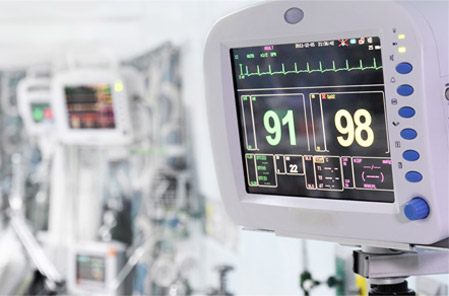
Many hospitals are trying to be smart—optimizing the digitizing of all their needed data and even hospital infrastructure—but many are failing, and patients today need faster decisions based on complete data. MGM Solutions weighs in on how hospitals can get smarter faster.
Hospitals globally are under tremendous pressure, facing factors such as reimbursement and cost pressures, while serving an increasingly aging population suffering from chronic diseases. Hospitals are seeking ways to improve their productivity and efficiency in order to reduce operational costs and improve overall margins.
While hospitals are busy doing this, patients are evolving into consumers whose needs and preferences need to be addressed to achieve optimal customer satisfaction—a notion hitherto almost alien to the healthcare industry.(1)
A current movement in hospital care is towards a more digitized, smarter hospital. A smart hospital would be defined as one which optimizes, redesigns or builds new clinical processes, management systems and potentially even infrastructure, enabled by underlying digitized networking infrastructure of interconnected assets, to provide a valuable service or insight which was not possible or available earlier, to achieve better patient care, experience and operational efficiency.
Smart hospitals should provide the valuable service of insight, which has simply not been possible until now. This is what takes a hospital a step beyond just being digital, making it truly smart. Current implementation of digital solutions in hospitals is one step in the journey to become smart.(2)
MGM Solutions offers advanced real-time locating systems (RTLS) technology, which helps hospitals with essential tracking of equipment, patients and even staff. The system relies on a patented triangulation method that integrates radio frequency, diffused infrared and low-frequency radio frequency to accurately track patients, staff and equipment in real-time.
The smart hospital framework involves three essential layers—data, insight and access. Data is always being collected, although not necessarily from all systems in a hospital, but isn’t integrated to derive “smart” insight, which can be done by feeding it into analytics or machine learning software. This insight must be accessible to users—doctors, nurses, facilities personnel or any other stakeholders—through an interface including a desktop or portable digital device, in order to empower them to make critical decisions faster, thus improving efficiency.(4)
Effective use of equipment can be tricky, and costs are skyrocketing due in part to an inability to locate equipment that may be sitting unused when needed for patient care. One study estimated that hospital costs had increased 90% per bed due to an excess of hospital equipment purchased but not used efficiently.(5)
“The ability to accurately track people and things within healthcare organizations, paired with forward thinking leaders, will create a big step forward in improving efficiency, safety, and both patient and staff experience,” said Mike Dunfee, Co-owner and VP for Healthcare Services for MGM in a statement.
“On the other hand, precise, real-time location of equipment makes this a thing of the past. With SecurTRAK, care providers are able to quickly locate equipment and ensure efficient utilization of equipment across the facility, thus eliminating the need to over buy equipment that may sit idle a majority of the time” Dunfee pointed out.
Sources:
1. Shah, Siddharth (Sid). “Understanding Smart Hospitals and Why Most Aren’t There Yet.” Healthcare IT News, 23 Oct. 2017.
2. Taylor, Karen. “By 2020 the Smart Hospital Will Be a Reality.” www.futurehealthindex.com, 13 June 2017.
3. Lim, Thiam Hwa. “Making the Smart Hospital a Reality.” Digitalist Magazine, Digitalist Magazine, 20 Dec. 2017.
4. “Finding People, Places & Things in Healthcare Facilities.” Finding People, Places & Things in Healthcare Facilities. Mobilehealthtimes.
